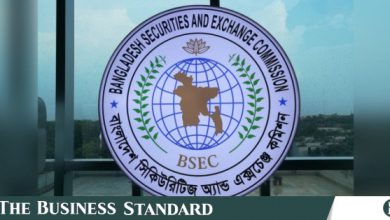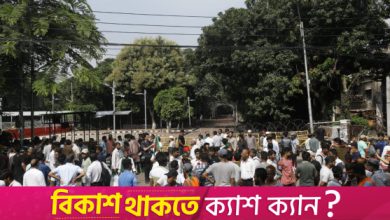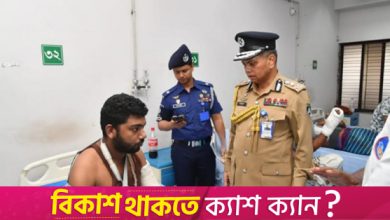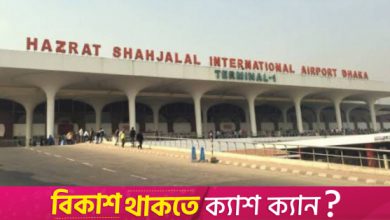July 2023: Hasina’s same old formula to crush opposition as diplomatic pressure mounts, UN-run polls demanded
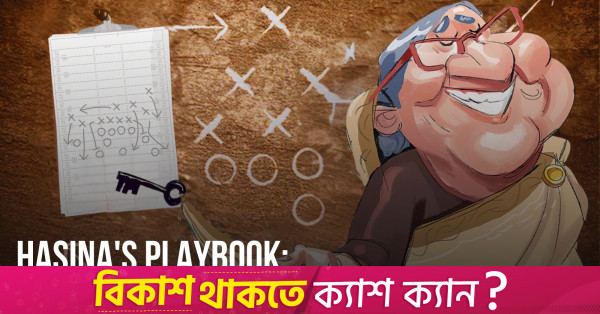

It was an unprecedented year full of events turning Bangladesh into a proxy battleground of global superpowers. Nationally, the divisions also ran deep. Calls for a UN-run election, a throwback to the late 90s came about. Diplomatic pressure was mounting. In this series titled Hasina’s Playbook, we provide accounts from our journalist’s diary chronicling the final year of Hasina. This part deals with July 2023
After an eventful month of July, the writing on the wall seemed loud and clear for the same old politics in Bangladesh. Classified as a “hybrid regime” by The Economist in its Democracy Index for years, Bangladesh approached its next parliamentary election.
A series of significant events, such as high-profile visits from the EU pre-election mission and US Under Secretary Uzra Zeya, along with the holding of four simultaneous large and peaceful rallies by the ruling Awami League and its archrival BNP in the capital, exhibited some positive signs in politics.
However, these signs were short-lived, as the month ended with an escalation of political violence on the streets.
On 29 July, during a sit-in program announced by BNP, the police used rubber bullets, tear gas, and water cannons to disperse protesters who had called for the then-prime minister Sheikh Hasina’s resignation and demanded elections under a non-partisan caretaker government.
Alongside the police, large numbers of rowdy ruling party men were seen using hammers, sticks, bats, and iron rods, among other objects, to beat the protesters.
BNP activists get into a clash with police in Jatrabari on 29 July 2023. File Photo: Joynal Abedin Shishir/TBS
“>
BNP activists get into a clash with police in Jatrabari on 29 July 2023. File Photo: Joynal Abedin Shishir/TBS
Reports published by the media on the 29 July events exposed excessive use of force by law enforcement agencies in violation of “the principles of legality, restraint, and proportionality.”
Moreover, allowing ruling Awami League men to flex their muscles on the streets with hammers, sticks, bats, and iron rods and attack BNP men demonstrated the partisan role of law enforcement in maintaining order.
The then-home minister Asaduzzaman Kamal defended the actions of the ruling party men, stating that “ruling party men helped the police to maintain law and order.”
What happened on 29 July indicated that politics had returned to the same confrontational dynamic ahead of the parliamentary polls, which were due to be held either at the end of December or early January.
It also signaled that Hasina’s administration had begun using the same old strategy to keep the situation under her government and party’s control ahead of the polls.
BNP men were not allowed to sit in at any of the four key entry points to Dhaka, as the large number of police and ruling party men had occupied and staged large showdowns at all entry points hours before the party’s programme was scheduled to begin.
Police and ruling party aggression led to clashes with BNP men in some areas of the city, and a number of buses were set on fire.
The next day, police filed over a dozen cases against more than 500 BNP men, accusing them of violence.
None of the cases accused ruling party men of the 29 July violence on the streets.
Selective use of the law by the police had also been observed after 18 July clashes between police, BNP, and ruling AL men in at least nine districts during BNP’s countrywide protest marches.
In the aftermath of those clashes, police filed 22 cases accusing around 15,000 people in nine districts but did not file any case against AL men for violence.
On both occasions, some deceased BNP men were also named as accused by the police, repeating the same errors made before the 2018 elections in an attempt to undermine opposition protests calling for elections under a non-partisan caretaker government.
However, by nipping BNP’s attempt to cut off Dhaka from other districts with the sit-in program, Sheikh Hasina’s government and party had made it clear that they would not allow the opposition to enforce any program aimed at paralyzing the capital.
The latest police crackdown on opposition men boosted the government and ruling party as well.
The police action showed they were no longer intimidated by the US visa policy, which threatened to deny visas to those responsible for undermining democratic elections in Bangladesh. Their actions, including thwarting the sit-in and filing cases only against BNP men, demonstrated the police force’s “partisan” loyalty to the regime. This boosted the ruling party’s morale in resisting the opposition movement.
The announcement of the US visa policy on 24 May changed the political landscape.
In mid-May, there were signs of street violence, but the visa policy had a game-changing effect. People believed the law enforcement agencies would act differently this time compared to 2014 and 2018. However, this perception weakened after the police actions on 29 July.
Why Dhaka mattered?
The BNP, which announced its one-point movement from a massive rally in Dhaka on 12 July, calling for Sheikh Hasina’s resignation, made it clear that it would focus its agitation in the capital.
This time, the party avoided using hartals and blockades, which had previously been marred by violence.
The ruling AL also announced that it would not allow the BNP to besiege or cut off Dhaka from other districts.
Records showed that the success or failure of anti-government movements largely depended on the situation in Dhaka, the capital that housed the government’s administrative hub.
In 1996, the Awami League and other opposition parties had successfully forced the BNP government to step down less than two months after holding a one-sided parliamentary election by bringing Dhaka to a standstill.
In 2006, Awami League-led street agitations led to the resignation of President Iajuddin Ahmed as chief advisor and the declaration of a state of emergency.
However, during the BNP-led opposition movement in 2013, they failed to take control of Dhaka, allowing the AL government to maintain control and hold a one-sided election in January 2014 amid opposition boycotts.
The importance of controlling Dhaka was evident again in 2018, when the BNP-led opposition failed to take control of the streets. The AL retained power.
Both the BNP and AL had made it clear that the battle for Dhaka would escalate in the coming days.
West vs Hasina
The political challenge ahead of the parliamentary election appeared bigger for Hasina than in previous elections.
Her government faced pressure from both domestic opposition and international communities. Unlike 2014 and 2018, when the international community was less vocal, countries such as the US, EU, and human rights organizations consistently called for free and fair elections, raising concerns over political violence and the use of force against protesters.
Economically, the country was under strain, with the government seeking a $4.7 billion loan from the IMF to ease pressure on its foreign exchange reserves, while rising inflation and a dollar crisis stressed the lives of ordinary people.
The ruling AL highlighted its development programs from the past 14 years, warning that everything would be doomed if another party came to power.
The government also attempted to curb criticism from foreign diplomats. Following international concerns over violence during the Dhaka-17 by-election, the government summoned diplomats, expressing displeasure at what it termed “undiplomatic behaviour.”
In the meantime, the call for a fair and violence free parliamentary election by the international community such as the US, European Union, rights bodies and others was getting louder.
The prime minister, ministers and ruling party leaders in their speeches highlighted the development programmes implemented in the last 14 years and claimed all have been possible as the AL remains in power since 2009.
They also told people everything would be doomed if any other party comes to power in future.
Her government has also made moves to gag foreign diplomats stationed in Dhaka.
After the assault on a candidate in Dhaka-17 parliamentary by-election, UN and USA separately expressed concern.
In a joint statement published by the US embassy in Dhaka on 19 July, 13 missions — US, UK, Canada, Denmark, France, Germany, Italy, the Netherlands, Norway, Spain, Sweden, Switzerland and EU – called upon the government to conduct a full investigation and take legal steps against the perpetrators of the attack on Alom.
Their statements annoyed the government.
On 20 July, the foreign ministry summoned acting UN resident coordinator Sheldon Yett to discuss a Twitter post expressing concern over the attack on Alom.
Five days later, the foreign ministry summoned 13 foreign envoys and expressed displeasure to them for what it says was their “undiplomatic behaviour” regarding statements on the attack on Hero Alom during the Dhaka-17 by-polls on 17 July.
Furthermore, they were warned against “violating diplomatic norms” by acting without objectivity and impartiality and bypassing the government.
Several days before [on 19 July] the then foreign minister AK Abdul Momen asked journalists to refrain from providing media coverage to things when foreign countries pass a statement on Bangladesh’s internal matters.
“Give me an investigative report on which countries issue such statements when similar things happen in their own countries. It is time to stop publishing or broadcasting such statements,” Momen said.
On 21 July, he again criticised diplomats and said foreigners think they are emperors of Bangladesh and enjoy talking about the internal affairs of this country.
“Nowhere in the world, ambassadors become activists and comment on internal affairs of a country,” he said.
During her visit to Italy on 25 July, Hasina asked the Bangladeshi diplomats to stay vigilant against the anti-state propaganda as the international community would not be confused and misled.
“I would like to say that the foreign ministry should provide propaganda related information to the envoys in different countries. If it can be done, they (who spread falsehoods) would not get any chance to create confusion,” she said.
She also added, “We should be more active in the places where there are international organizations. So, they (international community) also would not be misled and confused (through the propaganda and misinformation).”
The premier issued these directives while addressing the conference of Bangladeshi envoys in Europe at her place of residence here in Italy.
The US, by then, had decided to send a pre-election observation mission in October after a high profile EU mission made a two weeks long visit to Dhaka in July.
UN-Run Polls?
After the July street violence, 14 US Congressmen sent a letter to the US Ambassador to the UN, calling for the deployment of UN peacekeeping forces during the upcoming national elections in Bangladesh.
“[We urge that the] UN, in combination with impartial governments around the world, participate in supervising and conducting free and fair elections in Bangladesh. This should include the provision of peacekeeping forces to prevent intimidation, harassment, or assault of voters,” read the letter, signed by Bob Good, Scott Perry, Anna Paulina-Luna, Josh Brecheen, Ralph Norman, Andrew Clyde, Eli Crane, Cory Mills, Paul A Gosar, Doug LaMalfa, Ronny L Jackson, Randy Weber, Brian Babin and Glenn Grothman.
They also sought the immediate suspension of Bangladesh’s membership in the U.N. Human Rights Council until an “impartial and transparent” investigation into the government’s alleged crimes against political opponents and others, including journalists, is completed.
“Over the past 6 to 8 months, thousands of peaceful and courageous protesters have demonstrated in support of free and fair elections [in Bangladesh],” the letter stated, referring to the demonstrations by the opposition and pro-democracy activists.
The government, however, had no reason to like this idea. Yet, it was Sheikh Hasina who had desired a UN-run election a decade and a half earlier. In 2007, Hasina had sought a UN-mediated election, rather than the BNP-led general election under caretaker government Iajuddin Ahmed.
The Awami League-led grand alliance chief Sheikh Hasina resorted to all possible means to stop her rival BNP-led coalition from holding the parliamentary polls scheduled for January 22, 2007.
Hasina sought a UN-mediated election rather than the prospect of the general election under the then caretaker government led by Iajuddin Ahmed, according to US diplomatic cables leaked by WikiLeaks in September 2013.
With street agitation getting a momentum, Sheikh Hasina also aspired that chiefs of the three forces — army, navy and air force — would exert their power to make Iajuddin step down as the chief adviser (CA).
“Hasina wrote to the UN Secretary General in December [2006] asking for UN monitoring of the election,” reads a January 7, 2007, cable sent by the then US ambassador to Dhaka Patricia A Butenis. She, along with the then British high commissioner Anwar Chowdhury, met the AL president the day before.
“Hasina expressed some interest in a UN mediated election, but it was clear she envisioned an election effectively run by the UN and not just UN mediation of the political issues separating the two major political alliances,” the cable added.
EU Mission in search of a violent-free, fair election
The six-member Election Exploratory Mission from the European Union (EU) arrived in Bangladesh on July 9, 2023. They held a flurry of meetings with various government and non-government bodies.
They met with high officials from government bodies including the Foreign Ministry, National Human Rights Commission (NHRC), Bangladesh Police, Ministry of Chittagong Hill Tract Affairs, the Attorney General, Home Affairs, Information Ministry, and Law Ministry. They also met with the Election Commission, political parties, election observation groups, journalists, and civil society personalities.
During these meetings, the EU mainly inquired about the possibility of violence before the upcoming national election, poll-time security measures, and the overall human rights situation. The EU delegation held more than one meeting with the Election Commission (EC), which was tasked with conducting the upcoming national polls. The mission inquired about the EC’s preparedness, including their capability to hold a free and fair election, the number of voters, the voter list creation method, voting centers, and the CCTV installations. The EC informed them that it was fully prepared and had the capacity to conduct free and fair elections.
Their first week of visit coincided with the two-and-a-half-day visit by US Under Secretary for Civilian Security, Democracy, and Human Rights Uzra Zeya, who met the Prime Minister and stressed the need for a peaceful democracy. Uzra, who also witnessed the rallies held by both AL and BNP in the capital without any incident, termed those “good harbingers.” “I would say, we witnessed large political rallies that were, thankfully, free of serious violence. And I think this is what we would like to see,” she said. The EU delegation also witnessed the peaceful rallies, a testament to a peace that could be maintained with the major players both on the streets.
But in the second week of the EU delegation’s visit, things took a turn for the worse. Popular YouTuber Ashraful Alam, alias Hero Alom, who challenged the AL candidate in Dhaka-17 by-polls, came under attack on July 17 after he visited the polling center at Banani’s Bidyaniketan School and College grounds. The European Union mission was in the Gulshan area when the attack happened. Before that matter could be resolved, on July 18, violence broke out across the country as both the BNP and the AL took to the streets for their respective rallies.
The delegation also held a series of meetings on July 15 with the major political parties, where each made their position clear on the most contentious issue regarding the election-time government. While the BNP reiterated the demand for a caretaker government, which the Jamaat-e-Islami also supported, the Jatiya Party chose to strike a balance, urging the government to sit for dialogue. The ruling Awami League, as always, said the election-time government would be formed only under Prime Minister Sheikh Hasina. After leading the nine-member team in a meeting that lasted around two hours, AL General Secretary Obaidul Quader told reporters, “I want to clearly state that we will not accept any violation of the constitution…” Like other countries across the world, the election-time government in Bangladesh would be formed under the leadership of the Prime Minister, he added. “There is no question of dissolution of parliament, resignation of government, or forming a caretaker government,” he further stated. Obaidul Quader, also the Roads and Bridges Minister, noted that the EU delegation did not discuss dialogue and the caretaker government in the meeting.
Amir Khasru Mahmud Chowdhury, a BNP Standing Committee member, following his party’s 90-minute meeting with the delegation, told reporters, “We clearly told the EU delegation that the people of Bangladesh would not be able to vote if [election is held] under this government. We’ve told them that there’s no question of going to elections under this regime; it is not possible. There are so many reasons behind it.” Claiming that the EU delegation came to Bangladesh only because they had questions about elections under this regime, Khasru said, “They’ll go to power again through this process by controlling the election and keeping the people out of voting. These issues have been naturally discussed [in the meeting].”
“Fake” election observers in town!
With BNP and opposition parties continuing street agitation calling for the resignation of Sheikh Hasina for an election to be held under a non-partisan caretaker government, international communities had kept a watch on the situation unfolding ahead of the polls. Amid such a situation, the Election Monitoring Forum, a controversial platform, brought some “international observers” to Dhaka and developed a counter-narrative. Two advisors of the forum were former Election Commissioner Shah Nawaz, who was in the Kazi Rakibuddin-led EC that held the 2014 election, and Brig Gen (retd) Shahadat Hossain, who was in the Nurul Huda-led EC that held the 2018 election.
The forum that brought in the so-called international observers did not face difficulty in holding a series of meetings with the EC and some ministers. The reason was clear. What the so-called observers had said favored the ruling party. The visiting international team of election observers included Terry L. Easley from the US; Nick Paul from Ireland; Andy Lin from China; and Yusuke SOGO from Japan, according to BSS, the official news agency. After a meeting with the EC on July 30, Terry L. Isley, a member of the visiting team who was identified as a US political analyst by the forum, said they negated the demand for a poll-time caretaker government and expressed their confidence in the EC’s capacity to conduct a fair and credible election, reports BSS, the official news agency.
“We determined that the calls for an independent caretaker government would be ‘unconstitutional’ and ‘illegal’ under the current situation,” said US political analyst Terry L. Isley, a member of the visiting team, emerging from a meeting with the EC. He added: “As the representative of the delegation of observers, we have determined that your Election Commission is authorized by the constitution and independent, and so can be fair in the administration of the election.”
The same day, they expressed disappointment over the cancellation of their meeting with BNP, noting that they wanted to hear about their concerns regarding the upcoming national election in Bangladesh. “Our meeting with BNP was canceled by the party. We are very disappointed about that. We would like to meet with BNP as there are two sides to each story,” one of the delegates told reporters on Sunday. The delegation said they were “fair and independent” in their evaluation and observation and would still like to extend an open invitation to BNP to meet and discuss the concerns they had. They had meetings with the Election Commission, then home minister Asaduzzaman Khan, and State Minister for Foreign Affairs Md Shahriar Alam and discussed the preparation regarding the next elections.
The current chairman of the Election Monitoring Forum, Abed Ali, led the formation of the SAARC Human Rights Foundation, which brought in observers from Canada, India, Nepal, and Sri Lanka to observe the 2018 election. After the polls, in a press conference, they endorsed the fairness of the voting, often in glowing terms. Transparency International Bangladesh, the week prior, said its investigation into the December 30 election found irregularities in 47 of the 50 constituencies surveyed, including fake votes, ballot stuffing, and voters and opposition polling agents barred from entering polling centers. It found that the ruling party was alone in actively campaigning in all areas surveyed, sometimes with help from local law enforcement officials and government resources. The government dismissed the TIB’s investigation as “lacking in credibility.” Hasina’s political adviser H.T. Imam called the group “a puppet” of BNP.
Fair polls sans free media?
Freedom of expression in Bangladesh was reported to be “in crisis,” according to Article 19, a British human rights organization, in its latest report released in July. The Global Expression Report 2022 ranked Bangladesh 131st out of 161 countries in terms of freedom of expression, whereas the rank had been 133 in 2021. Article 19 gave Bangladesh a score of 13 out of 100, upon evaluation across 25 indicators. The organization placed Bangladesh in the “in crisis” category for eight years in a row. It was the worst of five categories in the report, starting with the category “open.”
Bangladesh had slipped a notch on the World Press Freedom Index as it ranked 163rd among 180 countries in the 2023 report published in May – placing at the bottom among South Asian nations. The country scored 35.31 in the 2023 index published Wednesday by Reporters Without Borders (RSF) on the occasion of World Press Freedom Day. Bangladesh’s score last year was slightly higher at 36.63 (rank 162nd). In 2021, Bangladesh’s position had been 152nd with a score of 50.29. It ranked 151 in the 2020 index.
On 10 July, Hasina told a group of journalists not to publish news that would “malign the country’s image and hamper its ongoing advancement.” While she said that her government was open to “constructive” criticism, she also stated that the country needed not to be “hampered anymore due to irresponsible journalism.”
A day later, Chief Justice Hasan Foyez Siddique said, “The state is ours. Which party remains in power doesn’t matter; we will have to take the state ahead. Journalists will have to play a responsible role in this regard.”
He highlighted the violent past of the country and said that reporting critical of the judiciary could make independence less meaningful.
The International Press Institute in a statement on 18 July said top government officials urging journalists to self-censor is dangerous and unacceptable.
“The media have a right to operate free of government pressure and influence. Efforts by public officials to encourage censorship is an unacceptable act of interference with press freedom,” it said.
Journalists have faced arrests and harassment, including through abuse of the country’s notorious Digital Security Act (DSA).
“These comments by the prime minister and the chief justice — two of the country’s top officials — reflect a mistaken understanding of the role of journalism in democracy, which is to hold the government and other power holders to account”, IPI said.
Freedom of press though guaranteed by the constitution the reality on the ground is opposite in Bangladesh. How will media paly due role to contribute to holding a free and fair election in this environment?
When AL, BNP fall in love with constitution?
The ruling party and the government high-ups keep proclaiming that the next parliamentary polls would be held according to the current constitutional provisions. They vehemently defended the current constitution as it favoured them.
The party that remained in power since January 2009 abolished the caretaker government system in 2011 banking on a Supreme Court order that declared the system unconstitutional paving the way for staying in power during the national polls.
In so doing, the government, however, did not fully comply with the apex court verdict that allowed holding two more parliamentary elections under non-partisan caretaker government and asked the government to strengthen the electoral administration by that time so the EC could hold free and fair parliamentary polls without having the caretaker government led by non-partisan men in future.
The party in power not only abolished the caretaker government system, it also restored the provision of original constitution of 1972 that introduced the system to hold the new parliamentary polls without dissolution of the incumbent parliament.
This system appeared as another major obstacle to create a level playing field for contesting candidates in election as MPs who seek re-election enjoy extra benefits than their rivals.
The contentious issues remained unresolved before the last two parliamentary polls held under the AL-led government.
In Bangladesh politics, two sets of strategies are followed by the parties.
When a party is in power it follows the strategy for ruling party. But when it is in opposition it takes to the streets with the demand for fair play.
The BNP, once upon a time around three decades ago when it was in power, was a hardcore defender of the constitution as the then provisions favored the party to stay in power during the parliamentary election.
But a ‘rigged’ parliamentary by-polls in Magura in favour of then ruling party candidate in 1994 energized then opposition parties’ movement spearheaded by Awami League to force the then BNP government to introduce the non-partisan caretaker government system by the parliament formed one-sided election held in February 1996.
It was a herculean job for the then opposition parties as the then prime minister Khaleda Zia and her party leaders were hell bent to defend the constitution that did not allow non-elected people to hold the state powers.
In 2006, then BNP government was also hell bent in favour of constitutional provision after it amended the constitution raising retirement age of apex court judges that made a certain individual to head the caretaker government that will be in office during the 2007 parliamentary polls.
But the AL-led opposition refused to accept it and launched vigorous street agitation that resulted in the declaration of the state of emergency postponing the scheduled polls in January 2007.
It was clear the party in power spoke for defending the constitution only when it fits its purpose.
(Catch the next part of this exciting series on Thursday!)
